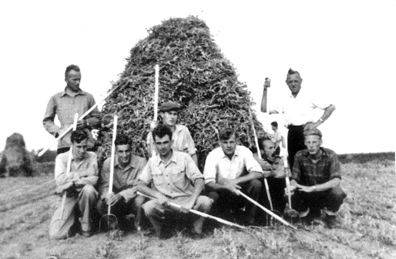Aeres Tech was established in 2016, following a series of mergers between existing Dutch training centres. Below, we explain how the Second World War formed the catalyst for a tradition of practical training in the Netherlands, and how this tradition ultimately led to the excellent institution that Aeres Tech is today.
The history of Aeres Tech begins shortly after World War II, when the Dutch government wanted to ensure the Netherlands had an autonomous food supply. This meant accelerating the mechanisation of agriculture and the intensification of the livestock industry in order to increase output quickly. Because it would be too expensive to provide each school with its own vehicles and installations, the Minister for Agriculture, Fisheries and Food Supply, Sicco Mansholt, decided to establish agrarian practical training centres.

These centres were intended to provide practical training to support the theoretical education of the junior secondary and senior secondary agrarian schools. Since the establishment of these centres, Dutch agrarian students have attended them one week a year to acquire practical knowledge.
Eleven practical centres were created in the 1950s and 1960s:
- Oenkerk - dairy farming
- Almelo - pigs and poultry farming
- Barneveld - pigs and poultry farming
- Horst - pigs and poultry farming
- Deurne - horse management
- Schoondijke - arable farming
- Emmeloord (former Northeast Polder) - arable farming
- Ede - horticultural engineering
- Ede - agricultural engineering
- Horst - mushroom growing
- Schaarsbergen - forestry





